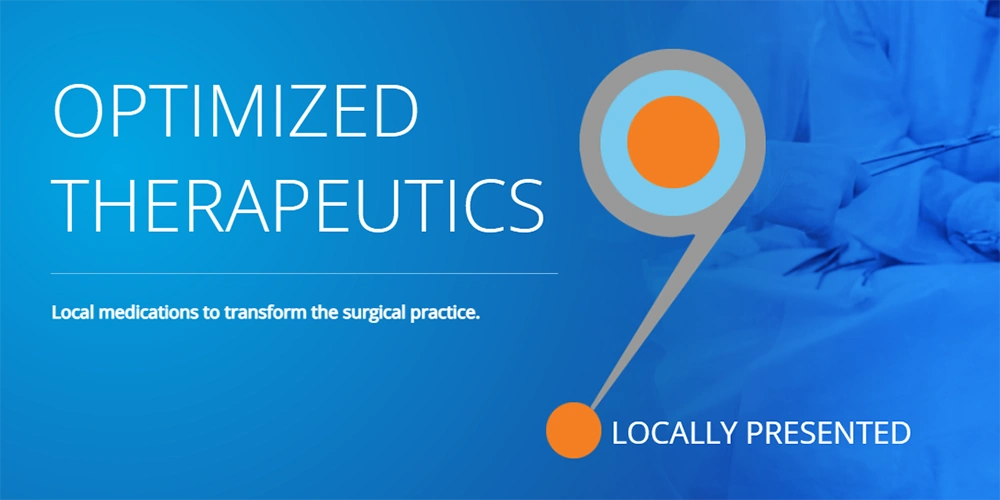Below is our recent interview with Ori Warshavsky, Chief Operating Officer at PolyPid:
 Q: Could you provide our readers with a brief introduction to PolyPid Ltd.?
Q: Could you provide our readers with a brief introduction to PolyPid Ltd.?
A: PolyPid is an Israel base, NASDAQ traded (PYPD), late-stage biopharma company that has developed a proprietary drug delivery platform, PLEX (Polymer-Lipid Encapsulation matriX), which enables local, high-concentration delivery of many types of active pharmaceutical ingredients (APIs) over periods of several days to several months. Our platform has three unique features that differentiate it from most drug delivery platforms. First, PLEX is administered locally, at the disease or drug target, i.e. injected directly into the cancer tumor or applied at the infection site. This feature ensures that high concentration of the drug reaches its target, eliminating the body-wide systemic toxic effects of the drug. Second, the PLEX platform is flexible and can encapsulate and deliver many types of API including large molecules like antibodies, complicated and sensitive molecules like RNA, and small molecules like antibiotics. Lastly, most prolonged delivery systems can deliver API for several hours to several days. Our platform can be customized to deliver API anywhere from several days to several months depending on the target disease we are addressing.
PolyPid is a vertically integrated company that has built over the year all the capabilities needed to develop new drugs including R&D, manufacturing, clinical and regulatory affairs. We have our own GMP certified manufacturing facility, that can support our clinical trials as well as commercial manufacturing. Our manufacturing facility ensures that we are not dependent on CMOs to manufacture our products and that we are a dependable collaborator to our partners. We have about 65 employees, most of them are based in Israel and 20% have been with the company over 5 years.
PolyPid’s lead product candidate, D-PLEX100, currently in Phase 3 clinical study, is designed to provide local prolonged and controlled anti-bacterial activity directly at the surgical site for 30 days to prevent surgical site infections (SSIs) with additional potential to prevent SSIs caused by antibiotic-resistant bacteria at the surgical site. D-PLEX100 received Breakthrough Therapy Designation from the FDA for the prevention of SSIs in patients undergoing elective colorectal surgery. In our First Phase 3 trial which concluded in May 2022, D-PLEX100 has shown significant 54% reduction in surgical infections in a pre-specified large incision population (>20cm). D-PLEX100 is currently in a second Phase 3 trial for the prevention of SSI in patients undergoing open abdominal colorectal surgery with large incisions with data expected in the second half of 2024.
Other than D-PLEX100, we are developing a pipeline of locally delivered drugs. Our next in line product is OncoPLEX, an oncology product targeting solid tumors with three week of high concentration local delivery of the chemotherapy agent, docetaxel, applied post-surgery to the tumor bed or injected intratumorally as a neoadjuvant treatment. OncoPLEX is in the pre-IND phase.
 Q: Any highlights on your latest announcement?
Q: Any highlights on your latest announcement?
A: We announced at the beginning of January the completion of a fundraising deal of $16.2m in gross profit. The deal was done by new and existing investors, including participation from new U.S. life sciences-focused investors, DAFNA Capital Management and Rosalind Advisors.
The transaction also included warrants exercisable at a 14% premium to the deal price per share. The warrants expire upon the earlier of two years from the date of issuance and 10 trading days following PolyPid’s announcement of the positive recommendation by D-PLEX100 Phase 3 Data Safety Monitoring Board (DSMB) regarding the unblinded interim analysis in its Phase 3 trial resulting in the stopping of the trial due to positive efficacy. Exercise of the warrants in full would result in an additional $18.5 million in gross proceeds to the company.
The funds raised in this transaction will be sufficient to fund our Phase 3 trial well beyond the interim analysis which is planned for July 2024.
Q: What can we expect from PolyPid in the next 6 months?
A: Over the next six months we expect to continue recruiting patients to our Phase 3 trial and expect to reach 400 patients recruited to the trial by May this year. Once we have 400 patients recruited and completed their 30 – day follow up, the DSMB will have an unblinded view of the data and will recommend whether the company should stop the trial for futility, stop it due to positive efficacy or continue the trial as planned for 600 patients. The readout from the interim analysis is expected in July while the topline results of the full trial are expected towards the end of the year.
In parallel to the patient recruitment, we are progressing with potential commercialization partnership discussions for D-PLEX100. We currently have a partner to commercialize the product across Europe and are looking for additional partners for the U.S. as well as other territories. We expect to be able to announce partnership agreements once the data from the interim analysis is available.
Finally, we are also progressing with the development of OncoPLEX and would like to be able to announce a development agreement for that product this year.
Q: What is the best thing about PolyPid that people might not know about?
A: Small biotech companies with Phase 3 products are rare, and ones with topline data coming in less than 12 months are even more rare. We believe that we have a de-risked phase 3 trial that answers a clear unmet need in the hospital surgical space and address a large market of over 12 million surgeries every year including abdominal and gynecological surgeries, open heart surgeries, orthopedic surgeries and others.
We have taken multiple steps to de-risk this trial. First, this current Phase 3 is studying the same large incision surgeries where we have shown significant reduction in SSI in the First Phase 3 trial.
Second, we are taking a very conservative statistical approach to the design of the trial and to the level of infection seen in hospitals. The higher the infection rate in the hospital is beyond our plan, the greater chance we believe we have to succeed in the trial.
Finally, since the completion of our previous trial we dove deep into the results and the execution of the trial and as a result incorporated a lot of lessons learned which will ensure the results we see are robust and accurate and truly reflect the infection levels in hospitals.
2024 will be a pivotal year for PolyPid with a number of major inflection points and catalysts that can change the face and trajectory of the company.






